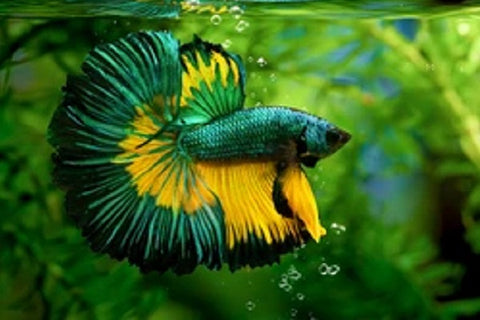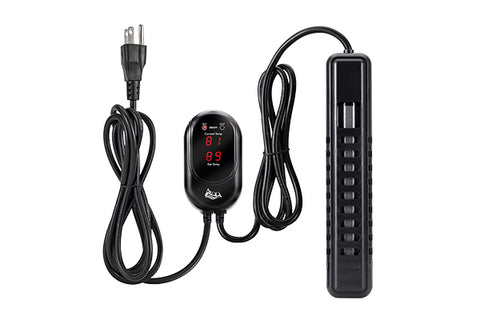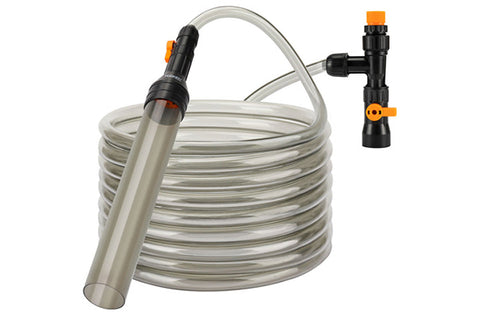We all want to show our betta fish affection in whatever way we can. Food and treats are one of the simplest ways we use to accomplish this. Overfeeding or feeding the wrong sorts of foods to your betta fish, on the other hand, can cause health concerns and water quality difficulties.
Consequently, there’s nothing more worrying than when you notice your betta fish not eating. While most of the reasons are not worth worrying over, some may require immediate action. If you want to discover why your betta isn’t eating, keep reading!
Bettas can be picky eaters

In the wild environment, bettas feed on live prey such as small worms, insect larvae, and water-bound insects, as well as a small amount of plant matter.
Although all bettas are individuals, a common reason for a fish to stop eating is simply that a diet of pellets is boring! Despite the fact that high-quality betta pellets include all of the nutrients your pet requires to flourish, they may have a bland taste. In fact, some bettas aren't even aware that pellets are food!
Often, the remedy to the problem is to make a betta's diet more fascinating and similar to his live diet. Introduce frozen or live bloodworms; this frequently works.
Frozen/freeze-dried food
In addition, when freeze-dried foods come into touch with water, they swell. This can cause your betta to feel bloated and constipated.
Soak frozen and freeze-dried foods in tank water to rehydrate them completely before feeding them to your fish.
Overfeeding
Keep in mind a betta fish's stomach is not much larger than its eye – so it's very easy to overfeed.
Don't be tricked into your betta's large appetite, sometimes they would eat the whole pack if you tipped it in. But remember overfeeding also causes health problems such as constipation, bloat, and issues with the fish’s swim bladder, which may cause them to stop eating. Also, excess uneaten food will rot and pollute your tank water.
Therefore, make sure you feed them with the proper amount of food and do not feed them too often.
A change in your betta’s environment
Bettas are sensitive souls that can get stressed by changes in their environment. Stress will cause your fish to stop eating, so it’s important to keep your pet’s habitat stable.
Bettas come from a tropical climate, liking water between 74 and 82℉ (23.3-27.7°C). The digestive system of the fish slows down when the temperature is too low. That implies the betta won't be able to properly digest his food, which could lead to constipation.
Temperature shock and stress, both of which kill the betta's appetite, are also caused by cold water. Even if your betta tank is kept in a warm location, you'll need a heater with a thermostat to keep the aquarium water at a regular and stable temperature. If the water is cool, your fish should start eating again once you've warmed the tank to the appropriate temperature for your pet.
Water quality changes
Nitrate levels will be high if the water in your betta tank is unclean and polluted. That's a potentially fatal circumstance that will force your betta to stop eating and may even kill him.
In new tanks that haven’t cycled properly, ammonia levels can quickly become dangerously high very quickly if you introduce your new fish too soon. So, make sure to follow our guides on how to change the water in your tank.
Stress and illness
Stress is very dangerous to fish. When a fish is stressed, its immune system is weakened, leaving the fish vulnerable to attack by various parasites and bacteria that can be present in the tank.
Common causes of stress for bettas include overcrowding, unsuitable tank mates and too much bright light. If you remove or fix whatever is causing your betta to become stressed, he should be able to resume eating.
A lack of appetite is one of the earliest indicators of disease. If your betta stops eating, keep an eye on him for signs of illness, such as lying at the bottom of the tank. Ich, Velvet, Swim Bladder Disorder, and Fin Rot are all common betta illnesses.
Flukes, anchor worms, and fish lice are among the parasites that can infect bettas. Any symptoms should be thoroughly investigated before treating the sickness or parasite. When your betta is feeling better, he should begin eating again.




Comments (0)
Back to Fish Care